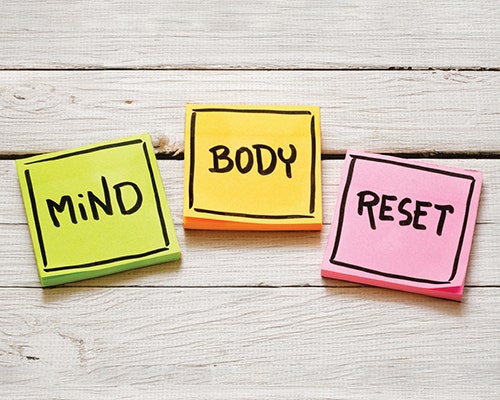Understanding Your Body’s Needs and Setting Health Goals Accordingly
- 12/4/23


With all the health and wellness advice out there, it’s easy to become overwhelmed or feel misguided about what goals you should be pursuing. Whether you're looking to enhance your fitness, or simply lead a healthier life, the first step is understanding what your body needs.
The path to a healthier you isn't one-size-fits-all, so it’s important to understand what fits you. Let’s unlock the secrets of personalized goal-setting, so you can figure out exactly what your body needs and create the best plan for you.
Who Should Set Goals?
Even if you don’t have a detailed plan, you’re subconsciously working toward goals in your career, relationships, and personal life. In order to make changes, though, goals need to be clearly identified and tailored to suit your needs.
There’s no qualification necessary for someone to set health and wellness goals. We’re all capable of achieving great success — we just need to have the discipline to do so.
If you’re feeling a tug toward doing something differently in regards to your physical, a personal qualifier is required in order to pursue health goals. However, it’s important that you’re motivated and willing to invest the time, energy, and focus necessary to pursue change. Goals are for everyone!
5 Steps to Creating Personalized Health Goals
Ready to make some positive changes in your health and wellness? Below are 5 simple steps to take you from being overwhelmed to focusing.
1. Do a Self Assessment
Before we can get from A to B, we have to understand of what A entails. Examining your baseline habits and obstacles helps you identify areas that are working well and areas that aren’t.
Part of a self-assessment is understanding your current physical and mental state. These can influence how ready you are to make changes and the types of goals that make the most sense. Consider these questions:
- When I think about making changes in my life, what kind of physical or mental response do I feel?
- What is the most important health improvement I want to make? How would I feel if I made this change?
- Which strengths and weaknesses may help or hinder my progress?
- What obstacles can I anticipate and am I equipped to handle them?
2. Consult with Experts
It may be helpful to seek input from health experts in your life. With all of the conflicting — and often misleading — health advice out there, you want to ensure that you have reputable advocates in your corner.
Trends from annual wellness exams, consultations with a dietitian, or therapy sessions can provide valuable insight into areas that would benefit most from targeted goals.
3. Consider Nutrition Needs
Physical components like body type, age, sex, and activity level are the main factors in determining your nutrient needs. For example, nutrition for weight loss differs from nutrition for bulking up. Nutrition for overall health differs from nutrition for a very specific goal, like increasing protein intake. Consider this when making a healthy eating plan for you. Additionally, many people benefit from adding a supplement like protein powder or a daily probiotic to their nutrition routine.
4. Outline Fitness Goals
Exercise and nutrition go hand-in-handand nutrition go hand-in-hand . Consider your body type, physical limitations, and activities you enjoy. A focus on cardio, flexibility,, or resistance training — or a combination — may make the most sense.
5. Evaluate Your Mental Health
Mental health is health and should be taken into account with your physical health goals. You may want to improve how you manage your stress, carve out more intentional time for relaxation, or enhance your emotional regulation.
Your Goals Are Personal
One of the biggest determinants of success is if you’ve created goals that align with your personal needs. Take a holistic approach to your well-being, which includes examining physical, mental, and emotional components that make you, well, you. Discovering your body’s unique needs is the first step toward fulfilling them.
References
-
Bailey RR. Goal Setting and Action Planning for Health Behavior Change. Am J Lifestyle Med. 2017;13(6):615-618. Published 2017 Sep 13. doi:10.1177/1559827617729634
-
Simmons LA, Drake CD, Gaudet TW, Snyderman R. Personalized Health Planning in Primary Care Settings. Fed Pract. 2016;33(1):27-34.





